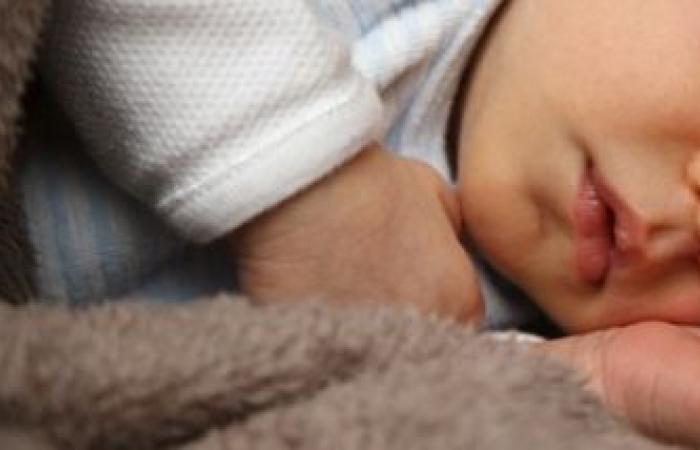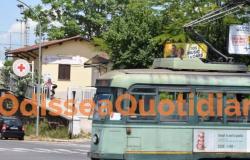Coordinated by the Buzzi Hospital in Milan, the study will involve 100,000 newborns with the aim of validating a test capable of diagnosing the disease early
Milan – A pilot study for neonatal screening of a very serious neurodegenerative disease of genetic origin, metachromatic leukodystrophy, is starting in Lombardy: will involve one hundred thousand newborns and will have the objective of validating a test for the diagnosis of this disease before the symptoms appear, when it is possible to intervene with gene therapy and thus change its natural history, which would otherwise be disastrous. Promoted by the Telethon Foundation thanks to an agreement with the Buzzi Children’s Hospital Foundationthe study will last thirty months and will be coordinated by theChildren’s Hospital “Vittore Buzzi” of Milan.
The leucodistrofia metacromatica (MLD) It is caused by mutations in a gene that lead to the accumulation of certain substances called sulfatides in the brain and other parts of the body. In the most severe forms, these children quickly lose the ability to walk, talk, and interact with the world around them: most of them die in childhood and have only palliative care available. It is estimated to affect one child in 100,000.
The gene therapy for MLDdeveloped thanks to the work of researchers at theSan Raffaele-Telethon Institute (SR-TIGET) of Milandirected by Luigi Naldini, was approved in the European Union at the end of 2020 and in Italy it is reimbursed by the National Health Service. It is administered through a single infusion and has been shown to preserve motor function and cognitive abilities in most patients, when administered promptly: it is in fact indicated for children with the late infantile or early juvenile forms who have not yet shown clinical signs of the disease and for those with the early juvenile form who, despite showing the first clinical manifestations, are still able to walk independently and have not yet shown a decline in cognitive abilities.
Hence the importance of an early diagnosis.: currently, most children eligible for treatment receive the diagnosis following that of an older, already symptomatic sibling, who is no longer treatable and destined for inevitable decline.
Lo screening neonatale represents one of the main public preventive medicine programs. Through a test performed on a blood sample taken from the heel of each newborn in the first three days of life, it allows for the early identification of a series of genetic metabolic diseases that can be treated with a dietary or pharmacological treatment. Thanks to Law 167, since 2016 this test has been extended throughout the national territory to over 40 diseases: according to the Italian Society for the Study of Hereditary Metabolic Diseases and Neonatal Screening (SIMMESN), approximately 350 Italian children could receive a lifesaving diagnosis every year.
MLD is not currently included among the diseases subject to neonatal screeningneither in Italy nor in the rest of the world: in fact, there is not yet a validated test, but There are already about ten studies underway in the United States, Europe and the Middle East (for a total of approximately 275 thousand children) who aim to develop it. In Italy, the first region to start one was Tuscanyin March 2023, coordinated by theMeyer University Hospital of Florence and also financed thanks to theAssociation Voa Voa Friends of Sofia.
The Lombardy study will use the same protocol in use in Tuscanyas the coordinator explains Christina CeredaHead of the Neonatal Screening Program at Buzzi Hospital. “In this study, we will apply the protocol developed by Professor Giancarlo la Marca of Meyer Hospital: the data collected in the two Italian regions will thus be perfectly comparable, an important aspect with a view to introducing the test throughout the country in the future. Given the severity of the disease, it is essential to minimize false positives so as not to create unnecessary anxiety in parents, but also false negatives, to offer the possibility of gene therapy to all those children who could potentially benefit from it”.
With the start of the project, the MLD test will be offered free of charge to all newborns in birth centers in Lombardywith prior written parental consent. Given that the incidence of the disease is currently estimated at 1:100,000, researchers expect to identify at least one affected child during the study. Children who test positive even after confirmatory genetic tests will be referred to the San Raffaele Hospital in Milan.the Italian clinical center authorized to administer gene therapy under the guidance of Alexander HelpsDeputy Director of SR-TIGET and Head of Clinical Research at the Institute.
“The start of this study represents a great achievement for Telethon,” declared the Director of Research and Development of the Foundation, Celeste Scotti. “In light of the extraordinary journey that led from the first laboratory studies over 25 years ago to the approval of gene therapy as a drug first in the European Union and, recently, also in the United States, we cannot forget all those children who could not be offered this treatment. Children who in many cases are no longer with us and whose brothers or sisters, who thanks to them received a diagnosis in time, have since grown up, go to school, play sports and have a future ahead of them. So, we would like no one to be left behind as soon as possible and neonatal screening would be an indispensable tool in this sense”.
“The neonatal screening laboratory participates with enthusiasm and pleasure in pilot studies to increase the number of diseases to be included in screening because this allows a greater number of newborns to use life-saving therapies. The chronic delay in adjusting the LEA to include new pathologies in the panel of testable diseases cannot make us give up the use of this powerful diagnostic tool to ‘give’ newborns and their families a life without pathology. The Lombardy Region has always supported the implementation of pilot projects in neonatal screening, seeing in it a way to improve the health service by providing diagnosis and treatment before the pathology manifests itself and reducing the burden on families and on the newborn”, explained Dr. Cristina Cereda.






